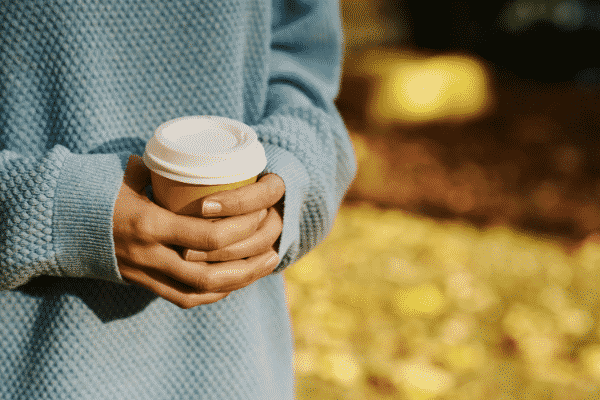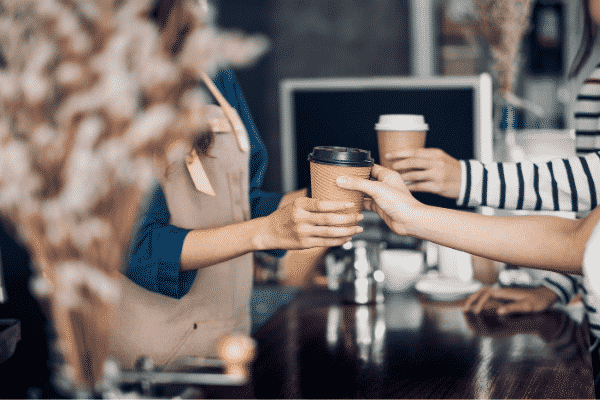In a country that loves its coffee, it’s practically a ritual for Australians to stop by the local cafe on their way to work. Some stay to savour their brew, though most of us tend to order it on the go.
Unfortunately, this simple choice is making more of an impact than we realise.
“These cups look like they’re made of paper, but they’re lined with a type of plastic called polyethylene. It makes them leak-proof, but unrecyclable,” explained Sukhbir Sandhu, an associate professor of sustainability and ethics. “They’re designed for 10 to 15 minutes of use, then they’re simply thrown away.”

Her research at the University of South Australia investigates the effects of ‘grab and go’ culture on sustainability, and the ways we can still enjoy our morning cuppa without causing irreversible harm to the environment. Considering Australians consume around 50,000 takeaway coffees every half hour, leading to 300 billion takeaway cups in landfills a year, it’s certainly the need of the hour.
“At the beginning of the pandemic, there was a lot of confusion on how the virus is spread and some cafes stopped allowing reusable cups. But reusable cups have a zero-contact method. It’s takeaway cups that have many touch points between their manufacture to your café,” Prof Sandhu told Indian Link.
It all leads to what her research has indicated: the answer lies in bringing your own reusable cup.
“Our findings show that the next time you grab a coffee with your colleagues, they’ll slowly mimic you and bring their own cups too. People are likely to adapt if they knew the environmental harm. It’s a matter of keeping a reusable cup handy in your bag or car,” said Prof Sandhu.
READ ALSO: From veggie gardening to op-shopping, migrants are the quiet environmentalists

The findings also hold interesting insights for café owners.
“It’s not discounts on reusable cups, but a small charge on takeaway cups that are likely to make a difference. Consumers tend to be ‘loss averse’ as opposed to ‘gain seekers’,” she added.
And although South Australia recently banned single-use plastics like straws, cutlery, and stirrers, there’s still some way to go. There remains the need for good waste infrastructure to dispose of biodegradable alternatives like compostable cups.
If all this leaves you wondering where to even begin making eco-friendly changes, you’re not alone. Eco-anxiety, or existential dread of a future ravaged by climate change, is on the rise. Most recently, Melbourne teenager Anjali Sharma challenged the federal Minister for the Environment Sussan Ley in a landmark class action on the effects of climate change and coal mining on future generations.
“The purpose of anxiety is to alert us to potential threats. In excess, it can be debilitating. But eco-anxiety doesn’t have to be a bad thing if it can be harnessed to make a difference,” Prof Sandhu suggested.

This can mean small but meaningful steps towards a sustainable future like thrift shopping, using public transport, and rewarding socially conscious brands with your business. Naysayers argue individual actions are meaningless, but according to the UniSA professor, “individual pieces in the puzzle need to come together.”
“Your buying power makes a difference. When you choose sustainable brands, it can be a powerful driver for corporations to change. It might’ve sounded harsh when Tim Flannery called my generation the ‘future eaters’, but it is up to us to take responsibility, and allow the new generation to step up,” she told Indian Link.
In 2019, it was reported that over 300,000 Australians, many still in school, attended the global climate strike that demanded meaningful climate action.
It keeps Prof Sandhu optimistic through her decade of studying sustainability and ethics.
“Changing habits can be hard, but we have the chance to rewrite our story. Your choices matter,” she said.
READ ALSO: Fighting climate change, one cell at a time
Link up with us!
Indian Link News website: Save our website as a bookmark
Indian Link E-Newsletter: Subscribe to our weekly e-newsletter
Indian Link Newspaper: Click here to read our e-paper
Indian Link app: Download our app from Apple’s App Store or Google Play and subscribe to the alerts
Facebook: facebook.com/IndianLinkAustralia
Twitter: @indian_link
Instagram: @indianlink
LinkedIn: linkedin.com/IndianLinkMediaGroup



